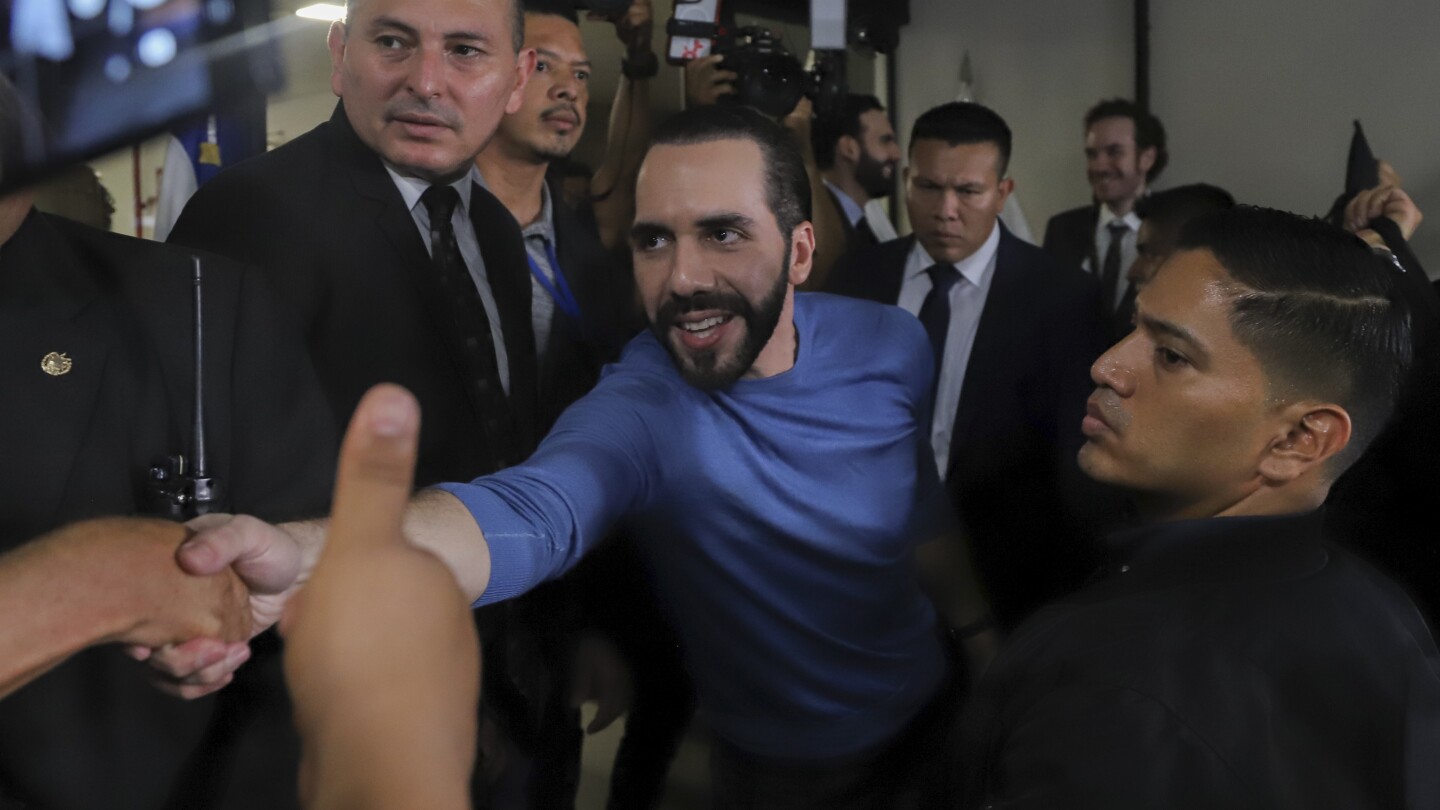SAN SALVADOR (AP) — As President Nayib Bukele seeks re-election, a growing number of voices are urging electoral authorities to reverse their acceptance of the popular leader’s candidacy, arguing it is a clear violation of El Salvador’s constitution.
Bukele has gained the unwavering support of many in this Central American nation of 6.5 million people after his fierce crackdown on the Mara Salvatrucha and Barrio 18 gangs halted what had been near constant terror in their day-to-day lives.
But many experts and international watchdog groups say that security has come at the expense of human rights and say Bukele’s heavy-handed moves have slowly eaten away at the nation’s already delicate democracy.
They are calling for the Supreme Electoral Tribunal to annul Bukele’s candidacy in the February election, though the body already accepted him and have given no indication they might change course.
Two lawyers, a citizen and another political party on Tuesday were the latest to ask for Bukele’s candidacy to be annulled, joining similar petitions already filed by parties like the conservative Republican National Alliance.
The appeals to the Supreme Electoral Tribunal argue that re-election is prohibited by the country’s constitution.
“It’s illegal, it’s unconstitutional,” said Salvador Enrique Anaya, among the lawyers to question Bukele’s candidacy. “At least seven constitutional provisions prohibit the immediate re-election of a president.”
Despite clear term limits, a set of Supreme Court judges put in place by Bukele’s supporters in congress said in 2021 that it would be legal for the leader to seek re-election and ordered the electoral tribunal to allow it.
For Bukele’s many supporters it was welcome news, and “Bukele 2024” T-shirts and hats began popping up in markets in the country’s capital, San Salvador.
The president’s critics say it was just the latest in a series of moves to consolidate his power and underlined the lack of effective checks and balances.
Since taking office in 2019, Bukele has suspended constitutional rights indefinitely to fight gangs, imprisoning tens of thousands in a “mega-prison.” His government has gone after political opponents, activists, critics and journalists and heavily controlled messaging has been bolstered by an army of social media accounts reproducing government propaganda.
While Bukele’s critics are sounding alarms, the Biden administration has said little on the upcoming election.
“There has to be a broad debate about the legality and legitimacy of the election, but it is a debate for Salvadorans,” Brian Nichols, assistant secretary of state for Western Hemisphere affairs, said ahead of a meeting with Bukele last month.
Last week, in a 4-0 vote, with one abstention, the Supreme Electoral Tribunal approved Bukele’s bid for the presidency, saying he and his vice presidential running mate, Félix Ulloa, met “the legal requirements” to run.
Bukele celebrated the decision on X, formerly Twitter, writing: “Legally registered! And without any votes against.”
On Monday, the four judges of the tribunal who voted to approve Bukele’s candidacy reiterated that they will obey the 2021 Supreme Court resolution.

